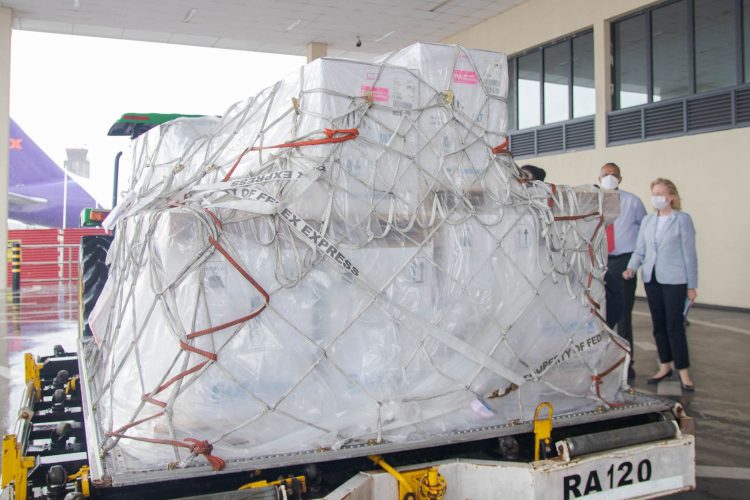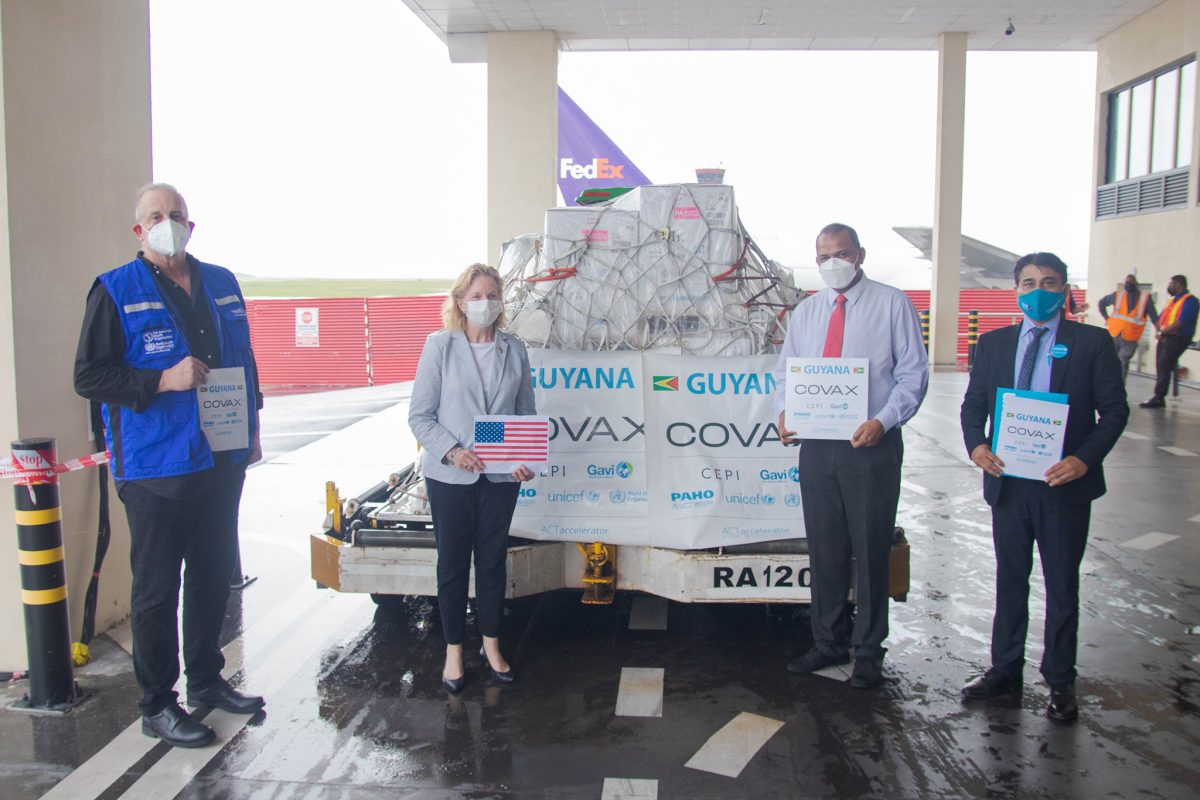Guyana on Friday received 100,620 doses of the Pfizer vaccine that are intended for inoculation of pregnant women and lactating mothers.
The doses, which came as a donation from the United States through the COVAX facility, were received by the Minister of Health and the United States Ambassador, among other officials, at the Cheddi Jagan International Airport,.
At a press conference held at the airport following the arrival, US Ambassador Sarah-Ann Lynch stated that the donation adds to the others that have already been provided to Guyana through the facility. At this stage, she noted, the United States has donated over 260,000 doses so far.

“For the United States… we will continue to look for opportunity to donate through COVAX. We will continue those contributions and also look for other opportunities for bilateral donations,” Lynch stated.
Also present was Pan American Health Organisation/World Health Organisation (PAHO/ WHO) representative to Guyana Dr. Luis Codina, who stated that the Pfizer vaccine has so far been utilized in a number of countries for the inoculation of persons from the age of 12 to 18 even as some other vaccines are currently under study for children.
Dr. Codina added that it is important for the ministry to continue its inoculation programme and as a result he commended the work that the Health Ministry has been doing as it related to inoculation thus far.
Meanwhile, Health Minister Dr Frank Anthony, during the press conference, expressed his gratitude for the donation of the vaccines and added that Guyana’s inoculation programme against COVID-19 would not have been where it currently is without the support from other countries and other donations.
“…We would not have been where we are today, so your support has been integral in the successes that we have achieved, we want to thank you and thank your respective governments,” he said while adding that Guyana has shared a special partnership with the United States during different stages of the pandemic.
He went on to note that the United States has also assisted in Guyana’s preparation to receive and even store Pfizer vaccines and others like it. Anthony said that while some thought that it was a long shot and that Guyana would not get the Pfizer vaccine, the ministry still made preparations to be able to store all types of vaccines.
“…When we reached out to the US government and said can we work with you to get some cold storage for the Pfizer types of vaccines, they said why not lets work on it and we were very happy to receive that as we prepared for the vaccines,” Anthony said.
When Stabroek News asked whether the government has any intentions of expanding the administration of the United States Food and Drug Adminis-tration (FDA) approved vaccine to the general population, the minister noted that they have selected sections of the population to receive the vaccine.
He mentioned that the first set of Pfizer vaccines that were received was allocated to the adolescent population and is expected to cover that cohort, while the newest vaccine shipment is expected to cover those pregnant and lactating mothers.
“…This set we were anticipating it and that’s why we have now extended to pregnant women and breastfeeding women and our birth cohort in a given year is about 14,000 to 15,000 women,” he said while adding that with that set of persons along with breast feeding women, it is expected that this tranche of vaccines would cover that section of the population.
Additionally, he mentioned that authorities also anticipate the emergency approval for the use of the Pfizer vaccine for persons aged 5 to 11 and as a result the next tranche of vaccines will be allocated to that set of persons. He noted, “With the anticipation that we will be extending to the 11 to 5, when we get the next set of vaccines that will go to that age cohort. Of course with the 11 to 5 we anticipate that the dosage would be smaller so with the same amounts of vaccines you will be able to do more children.”
Once those selected populations for those vaccines have been exhausted, the minister said then the authorities will look at expanding to other sections.




